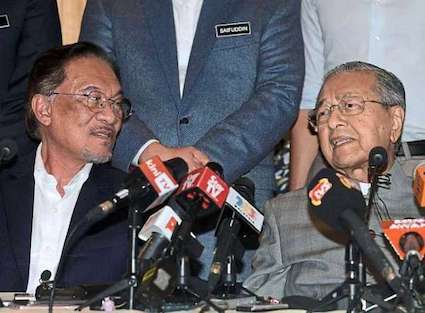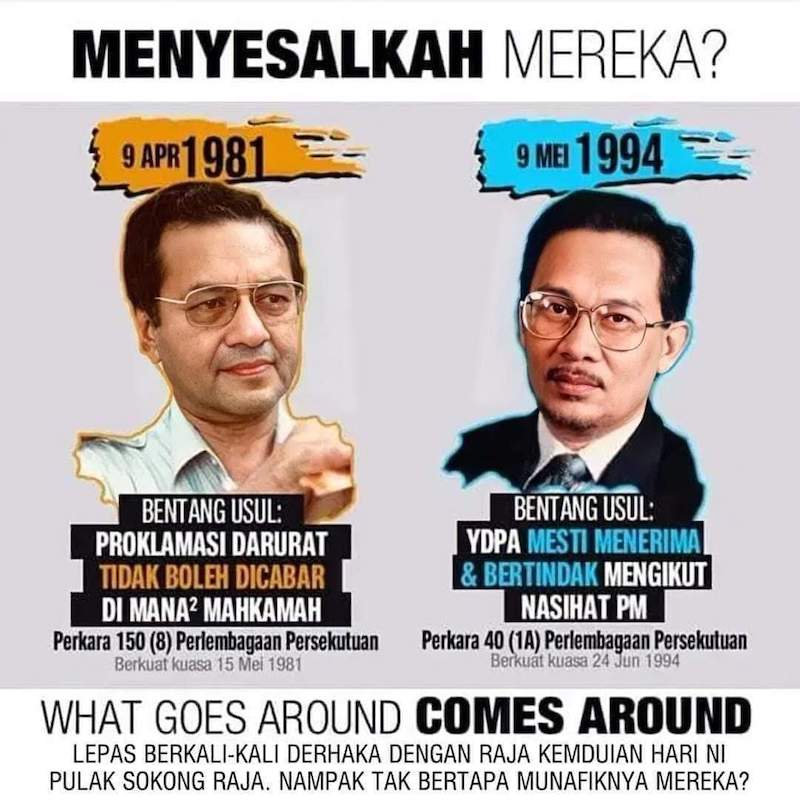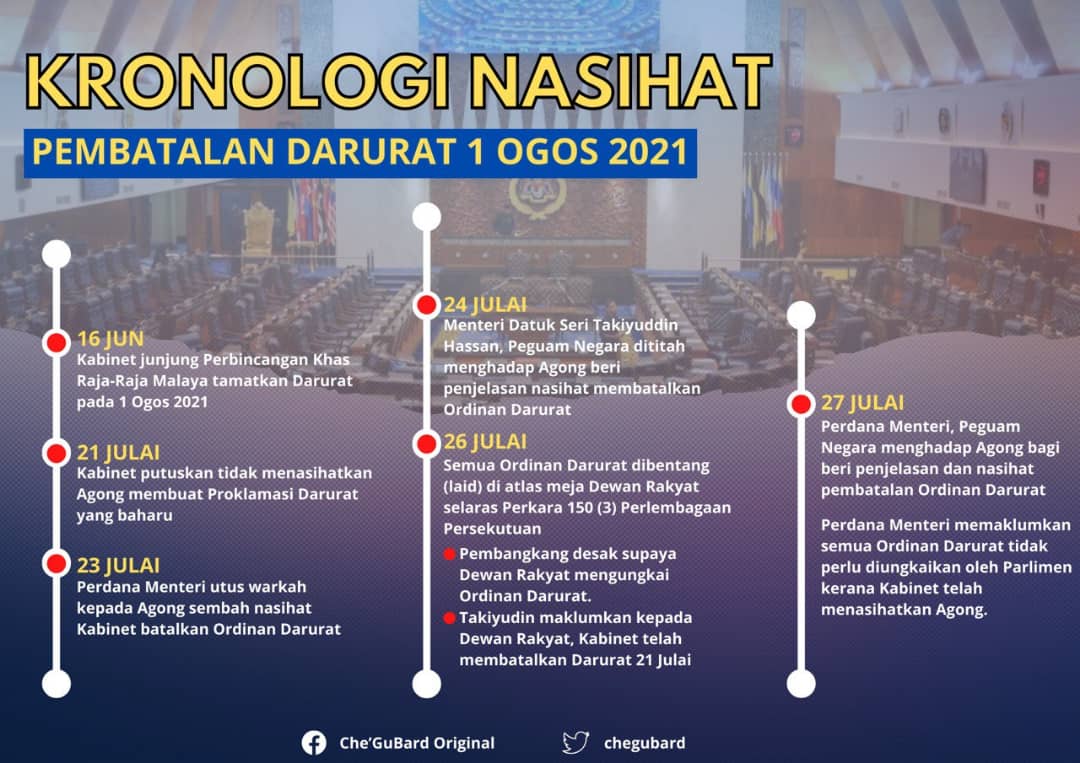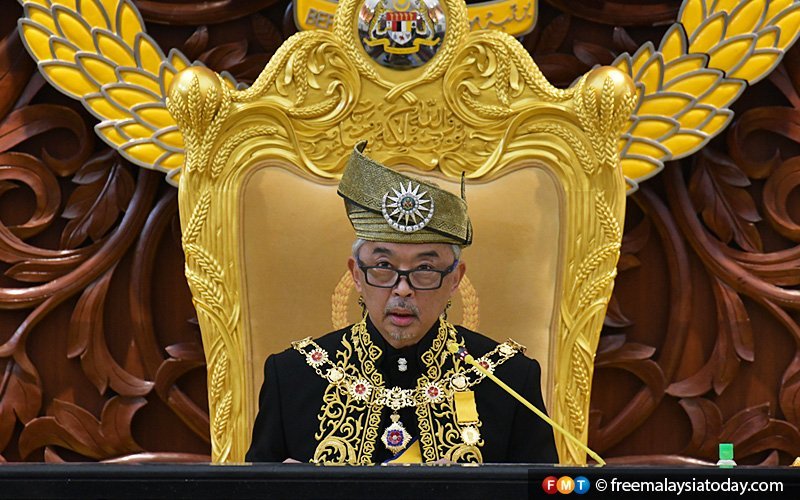
Pakatan Harapan is complaining that the Agong is being treated like a rubber stamp. That is true. In May 1994, Tun Dr Mahathir Mohamad and Anwar Ibrahim reduced the Agong to a mere rubber stamp. So stop grumbling when Mahathir and Anwar are the cause of this latest Constitutional Crisis. In 1994 Mahathir and Anwar made the Agong irrelevant.
NO HOLDS BARRED
Raja Petra Kamarudin
(FMT) – The Prime Minister’s Office has wrongfully treated the King as a “mere rubber stamp” in its response to the royal rebuke it received over the revocation of the emergency ordinances, Pakatan Harapan said.
The opposition coalition’s legal committee said the PMO’s decision to cite Article 40(1) of the Federal Constitution which stipulates that the King is required to act in accordance with the advice of the Cabinet, showed that it treated the King as the latter’s mouthpiece.

This was done with scant respect for the King’s position as “moral and legal compass of the nation”, the committee said.
PH also labelled Putrajaya’s interpretation that it satisfied Article 150(3) by having the emergency proclamation and related ordinances being “laid” on the MPs’ tables as the “most dishonest argument”.
Instead, it argued that the emergency ordinances would only cease to have effect if resolutions are passed by both Houses revoking such a proclamation or ordinance.
“There must be debate and voting for Parliament to pass a resolution,” it said in a statement.
PH also said the phrase “if not sooner revoked” in Article 150(3) meant that Parliament may repeal the proclamation and ordinances when it is convened, if it had not done so prior to the sitting.
It did not mean the Cabinet could revoke the ordinances before coming to Parliament.

The Agong had already been informed about the revocation of the Emergency Ordinance
Law minister Takiyuddin Hassan, the committee said, had misled Parliament and the public when he announced that the proclamation and ordinances had been revoked on July 21.
Only the Yang di-Pertuan Agong can revoke the proclamation and ordinances, and revocation can only take effect when it is gazetted, which has not been done, the committee added.
It went on to say that the PMO’s statement, in seeking to justify its actions by providing a purported chronology, suggests that the King misrepresented the facts in the Palace’s statement.
This, the committee said, was an affront to the Royal institution and to the King.
It also said the PMO’s statement omitted the fact that both Takiyuddin and Attorney-General Idrus Harun had been instructed by the King to table the emergency proclamation and ordinances for debate and voting in Parliament.
“The fact of the matter is that the Cabinet has deliberately treated the Yang di-Pertuan Agong’s instructions with total disdain by failing to act as instructed. This is disobedience at the most serious level.”
Yesterday, the PMO said the government’s revocation of the emergency ordinances was done in accordance with the law.
Its actions, it said, were in line with Article 40(1) of the Constitution which states the King shall act on the advice of the executive but is entitled to request for additional information.

Since 1994, the Agong is just a rubber stamp thanks to Mahathir and Anwar
When the special Dewan sitting convened on July 26, all emergency ordinances were “laid” on the Dewan Rakyat table in line with Article 150(3) of the Constitution, the PMO said.
The PMO’s clarification came after the Palace had released a statement saying that Putrajaya had not obtained the King’s consent to revoke the emergency ordinances.
Comptroller of the Royal Household Ahmad Fadil Shamsuddin said Articles 150(2B) and 150(3) of the Constitution clearly gave the authority for the enactment and revocation of ordinances to the King.
No comments:
Post a Comment
Note: Only a member of this blog may post a comment.